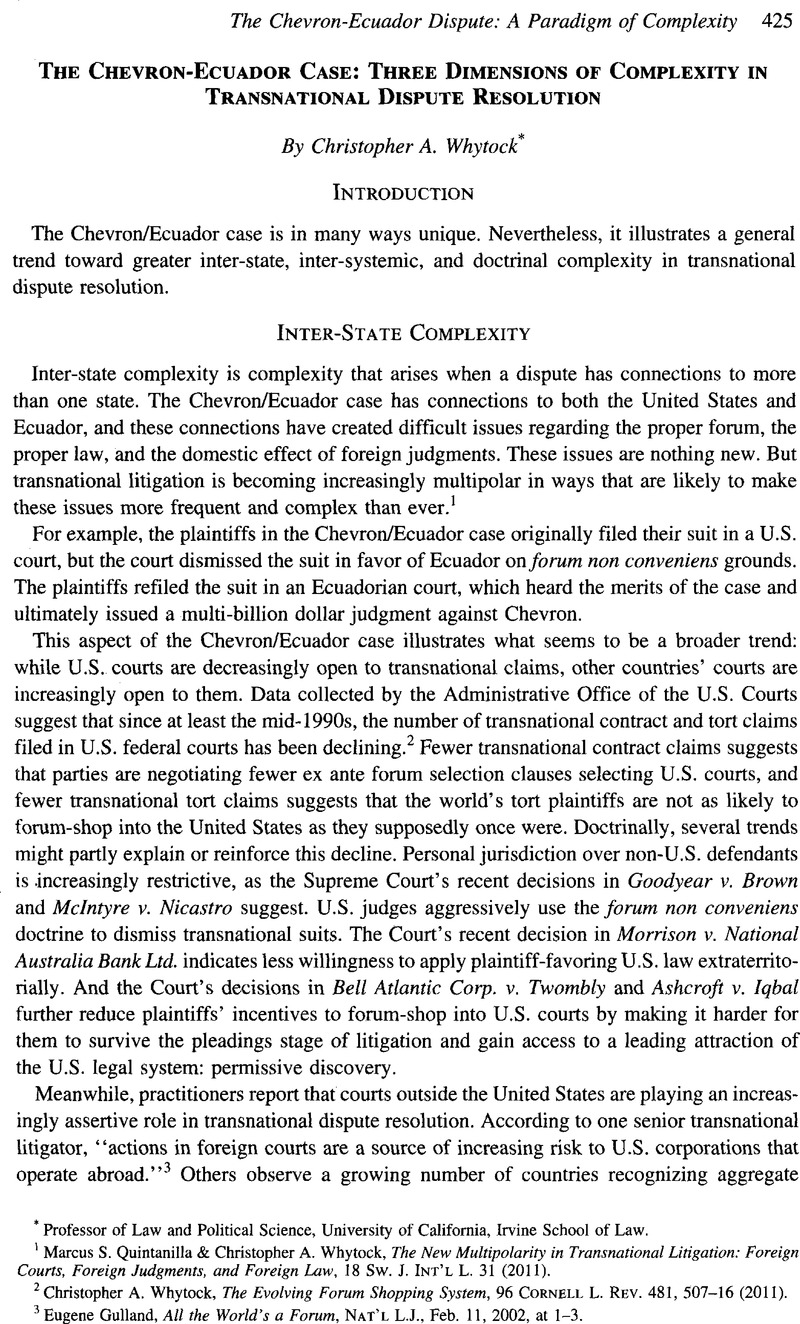No CrossRef data available.
Article contents
The Chevron-Ecuador Case: Three Dimensions of Complexity in Transnational Dispute Resolution
Published online by Cambridge University Press: 28 February 2017
Abstract

- Type
- The Chevron-Ecuador Dispute: A Paradigm of Complexity
- Information
- Copyright
- Copyright © American Society of International Law 2012
References
1 Quintanilla, Marcus S. & Whytock, Christopher A., The New Multipolarity in Transnational Litigation: Foreign Courts, Foreign Judgments, and Foreign Law, 18 Sw. J. Int’l L. 31 (2011)Google Scholar. Whytock, Christopher A., The Evolving Forum Shopping System, 96 Cornell L. Rev. 481, 507-16 (2011)Google Scholar.
3 Gulland, Eugene, All the World’s a Forum, Nat’l L.J., Feb. 11, 2002, at 1–3.Google Scholar
4 Behrens, Mark A., Fowler, Gregory L. & Kim, Silvia, Global Litigation Trends, 17 Mich. St. J. Int’l L. 165, 193-94 (2009)Google Scholar.
5 Born, Gary B. & Rutledge, Peter B., International Civil Litigation in United States Courts 1078 (4th ed. 2007)Google Scholar.
6 Quintanilla & Whytock, supra note 1, at 35-37.
7 See generally Whytock, Christopher A. & Robertson, Cassandra Burke, Forum Non Conveniens and the Enforcement of Foreign Judgments, 111 Colum. L. Rev. 1444 (2011)Google Scholar (proposing doctrinal changes to avoid transnational access to justice gap that can result from the different adequacy standards).
8 § 4(a)(1) [emphasis added].
9 See 2005 Act § 4(c)(8) (a court need not recognize a judgment if “the specific proceeding in the foreign court leading to the judgment was not compatible with the requirements of due process of law”).
10 American Law Institute, Recognition and Enforcement of Foreign Judgments: Analysis and Pro Posed Federal Statute 59 (2006>).
11 233 F.3d 473, 477 (7th Cir. 2000).
12 2005 Act § 4, cmt. 7.
13 Id.
14 Id. See also American Law Institute, supra note 10, at 62.


